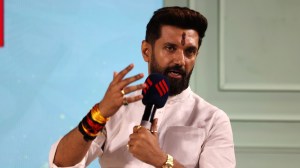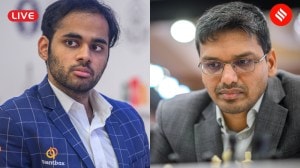India lets ganglord Rajan walk free
MUMBAI/NEW DELHI, OCTOBER 5: In an operation that smacks of deliberate clumsiness, India today muffed up an opportunity to get custody of ...

MUMBAI/NEW DELHI, OCTOBER 5: In an operation that smacks of deliberate clumsiness, India today muffed up an opportunity to get custody of underworld don Chhota Rajan, wanted in Mumbai for more than a dozen murders.
The government of India did not make any formal request for the extradition of Rajan ahead of the 9 am (Thai local time) deadline set by the authorities there. Even the Mumbai police team, which made a last-minute dash to Bangkok, reached there well past the hour. After waiting for days for the Indian authorities to turn up with an extradition request, Thailand today freed the ganglord.
Lt. Gen. Hemaraj Thareethai, Thailand’s commissioner of Immigration Police, said Rajan is free to go wherever he wants to. “If he has a plane waiting, he can take it. Where he goes is his own business,” Hemaraj said. Hemraj said that Thai authorities told the Indian government to apply for his extradition but the Indians showed no interest. “I had decided two days ago that by 9am today if there is no official request from India, there would be no need to keep him under our custody,” Hemaraj said. “I have waited for India’s response long enough.” The Indian Embassy in Bangkok refused to comment.
Hemaraj said that once he leaves, Rajan will be put on an immigration blacklist and never allowed to enter again. “When he goes out of Thailand, the Thai Royal Police will be very relieved,” he said.
The Indian government has been talking about the absence of an extradition treaty as the biggest hurdle in getting Rajan back but the Thai police was only more than eager to cooperate if a request was made. “We had earlier received a fax from Interpol, India, giving details about a 1995 arrest warrant against Rajan. However, Thai courts need a formal request from the Indian Foreign Ministry to set in motion the extradition proceedings,” Hemraj said, surprised at India’s leaden-footedness.
The Bangkok Post had reported yesterday that a Thai Interpol officer called on the Indian government to request Rajan’s extradition “to prove to the world that they really wanted to arrest him.” Jeeraphat Lapanukrom, who oversees Thai Interpol, said Indian had shown no interest in the case. Wissanu Muangpraesri, superintendent of the Immigration Bureau, too said immigration police were very surprised by the Indian government’s silence.
Sirichai Piyapichetkul, Rajan’s lawyer, told the newspaper that Rajan would fly out to Vietnam on a private plane.
The Mumbai police is miffed at the lack of action from the Centre. Commissioner M.N. Singh and Joint Commissioner D. Shivanandan were unavailable to the press but the Mumbai police is holding the Centre responsible.
The visit of the Mumbai team, inexplicably cancelled once and cleared again at the last minute by the Centre, also proved to be an exercise in futility. The team of ACP Shankar Kamble, Inspector Sudhakar Pujari and Sub-inspector Hemant Desai are learnt to have met and talked to Rajan but had no official status to do anything beyond that. Their role was reduced to merely collating information on the September 15 attack on Rajan.
The almost open reluctance of the Indian authorities to take custody of Rajan is bound to give further credence to the theory that he is being used as a counter-balance to the Dawood Ibrahim gang.
Menawhile, in Delhi’s corridors of power, the game of passing the buck continued. “It’s true the Union Home Ministry Stopped Mumbai Police from proceeding to Bangkok last week after Chhota Rajan,” a top North Block official today disclosed, but added, “this was because the External Affairs Ministry, the nodal agency in such matters, had yet to give its clearance to the team.” But there is no answer to why the team was despathed at the very last moment and three precious days was virtually allowed to lapse.
In fact, it was not the Mumbai Police, but the Interpol which first got into the act. On September 18, the Central Bureau of Investigation (CBI), say Home Ministry officials, approached the Interpol with a request to secure Rajan’s detention in Bangkok. “But the fact that the CBI doesn’t have a case registered against Rajan (it was acting merely on behalf of Mumbai Police) probably diluted the urgency of the matter and the Interpol did not press the matter forcefully enough,” they add.
Both the Home Ministry and the External Affairs Ministry are refusing to say anything much about their own actions. The MEA has practically washed its hands of the case. Ministry spokesman R.S. Jassal, without going into details, simply remarked that there was “total coordination between the MEA and MHA”and that “the Foreign Secretary and the Home Secretary were constantly in touch.”
But Jassal did point out there was no extradition treaty between India and Thailand, the argument also hammered by MHA to explain why it could not — and did not — sought Rajan’s extradition.
Till late in the day, a faint hope persisted in a section of the Home Ministry that Thailand Government might just deport Rajan to India (as he is an Indian passport holder). Nothing happened mainly because no serious criminal charge had been slapped on Rajan by the Thai police.
Rajan came into the Thai police’s attention and subsequent custody when he was injured during an attempt on his life on September 15. His associate Rohit Verma was killed in the attack.


- 01
- 02
- 03
- 04
- 05





























